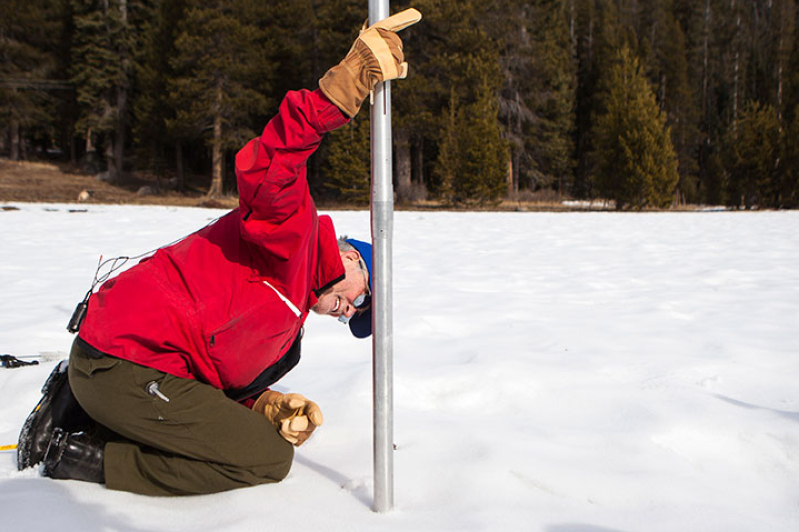
State officials in California have announced that there will be no relief from a long-running drought anytime soon thanks to below-average snowfall and weak water conservation efforts by residents.
According to the latest data cited by Paul Rogers of San Jose Mercury News, people in California cut their water usage by 8.8 percent statewide at homes and businesses in January compared with January 2013, the baseline year set by state water officials. Gov. Jerry Brown had originally set a 20 percent conservation target.
"Folks look at their lawns, and they just can't bear them being brown," Felicia Marcus, chairwoman of the State Water Resources Control Board, said.
Rogers noted that the state water board will consider new rules on March 17 to increase water savings. Marcus speculated that the rules could include restaurants only serving water on request, hotels posting signs that give the option to guests to not have sheets and towels washed every day, and new lawn watering controls that take effect after a rainstorm.
However, critics such as Peter Gleick, president of the Pacific Institute, told Rogers that the state's weak efforts do not go far enough.
"The responses have to be far more comprehensive and aggressive," Gleick said. "The issue is not telling people not to water their lawns after it rains; the issue is telling people to get rid of their lawns. The issue is not about restaurants and glasses of water; it's about getting rid of millions of inefficient appliances."
Marcus told Rogers that although Brown selects the members of the state's water board, local governments are generally the ones setting up the water controls, given the various climates and water supplies across the state. This method reflected the governor's philosophy that local governments should take the lead instead of Sacramento passing "one-size-fits-all-rules."
"Our objective has been to get local agencies to step up," Gleick said. "If it doesn't rain though, we will have to consider more. No tool will be left off the table."
Gleick added that last year's water policy, which depended on the rains returning at normal levels, was a complete "failure."
"We better look for more effective new ones - and soon," Glick said.
According to David Bienick of KCRA 3, snow supplies about a third of the state's water. However, state officials reported that the snowpack in the Sierra Nevada is far below normal.
"It's very meager and it is clearly flirting with being the lowest on record," Frank Gehrke, chief of the California Cooperative Snow Surveys Program, said.
According to Bienick, the survey found a snowpack water equivalent of 0.9 inches. In the previous snow survey that occurred on Jan. 29, the water equivalent was measured at 2.3 inches.
"There is no reason to think we will have such a good March again this year," Gehrke said.
Water board scientist Max Gomberg described to Bienick the difficulty of presenting the drought as an emergency situation to people in California.
"It's hard to sustain a sense of urgency and emergency for a longer period of time, but unfortunately we don't have a choice," Gomberg said. "We have to redouble the (conservation) effort."
Marcus speculated to Bienick that heavy rains in December led people to increase their water usage.
"I think that people may have thought that with all that rain in December, the drought must be over," Marcus said.







